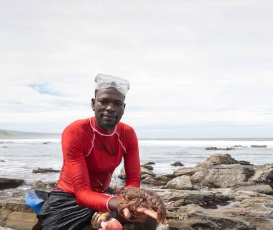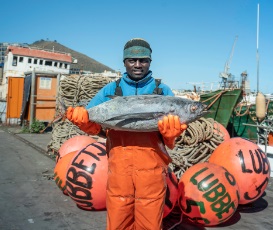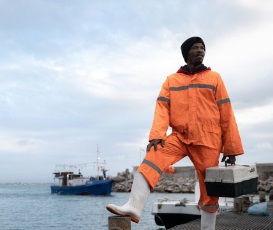
Watch the Saldanha Bay rope-grown mussels film

Fishery profile

Saldanha, 100km north of Cape Town, is one of the oldest fishing villages in South Africa. The naturally sheltered bay – the largest in the country – is fed by the cool, nutrient-rich waters of the Benguela Current. With good circulation and high water quality, the bay is an extremely productive ecosystem and boasts ideal conditions for filter feeders, including mussels and oysters.
Two species of mussel, the indigenous black mussel (Choromytilus meridionalis) and the introduced Mediterranean mussel (Mytilus galloprovincialis) now occur naturally in the bay. They start life as free-swimming larvae in search of a hard surface – usually a rock – to attach to. Local harvesters capitalise on this with vertical farms: systems of ropes suspended from longlines or rafts which provide a substrate for mussels to settle on. Once there, the so-called “rope-grown mussels” are left to feed and grow naturally for several months, before being reeled in and harvested.

“They’re grown naturally. All you need is nutrient-rich water. You can harvest every seven months, over and over again, as long as it’s done sustainably.”
Farm Manager for African Olive Trading
The Bay’s rope-grown mussel fishery is considered to be well-managed with limited impact on the wider marine environment. It’s also providing much-needed employment for a local community reeling from the recent closure of its steel mill and loss of more than 1,000 jobs.
It’s early days, but there are already signs that the Fish For Good project is having a positive impact on the community.

“The initial improvement we have seen is environmental, but the knock on effects are social too. There’s a customer preference not only for a sustainably grown product, but one which delivers social benefits too.”
Chief Executive of Atlantic Royal

Fish for Good Improvement Actions
- The fishery, together with the Department of Environment, Forestry and Fisheries, is implementing a monitoring programme and collecting baseline information to improve understanding of the potential impacts the fishery might have on the seabed.
- The fishery and government are also partnering to develop a management strategy to minimise potential ecosystem impacts from cleaning biofouling organisms off mussel ropes.
- The fishers are being trained to collect information on interactions with endangered, threatened or protected species and will develop strategies for managing these interactions.
- The fishery has shown its commitment to sustainability by entering the ‘In-transition to MSC’ program and received £50,000 from the organisation’s Ocean Stewardship Fund to implement improvements
“The rope-grown mussel fishery has an impressive vision. They want to grow their fishery for the benefit of the wider Saldanha Bay community but also ensure it's done at international best practice level for sustainability - choosing to benchmark their progress against the MSC’s Fisheries Standard.”
MSC Fisheries Outreach Manager for Southern Africa
More South Africa Fish For Good stories
Find out more
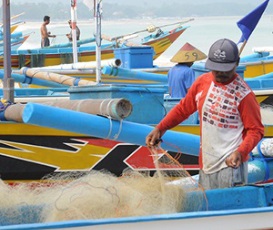
Fish for Good (project home)
Fish for Good is a four-year project aiming to guide fisheries in Indonesia, Mexico and South Africa on their journey towards sustainability.
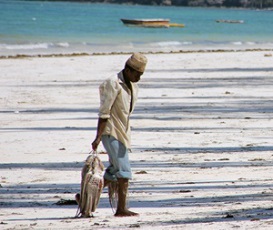
Southwest Indian Ocean Octopus Project (SWIOCeph)
An increased global interest in octopus creates potential for export market opportunities. This project will assist octopus fishing communities in the southwest Indian Ocean regions towards more sustainable practices.
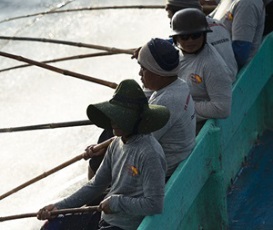
Fish for Good - Indonesia
Indonesia is the world's second largest fish producer. Some stocks are being overfished. Local food security, economy and marine biodiversity are at risk.
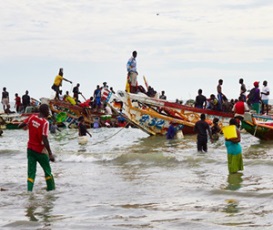
Fishery Improvement Projects (FIPs)
The MSC recognises the important contribution that FIPs can make to improving overall fisheries health and in promoting sustainable seafood. We work to provide technical support and capacity to credible FIPs.


